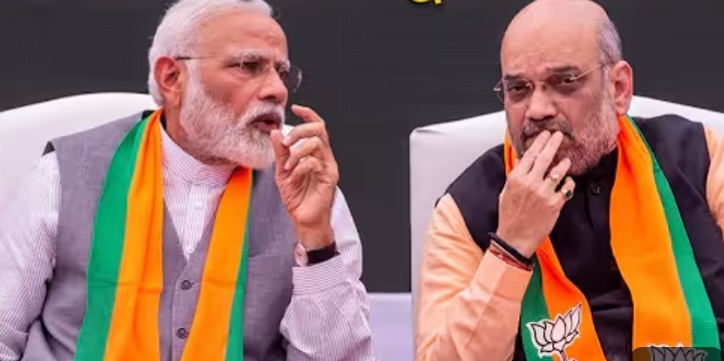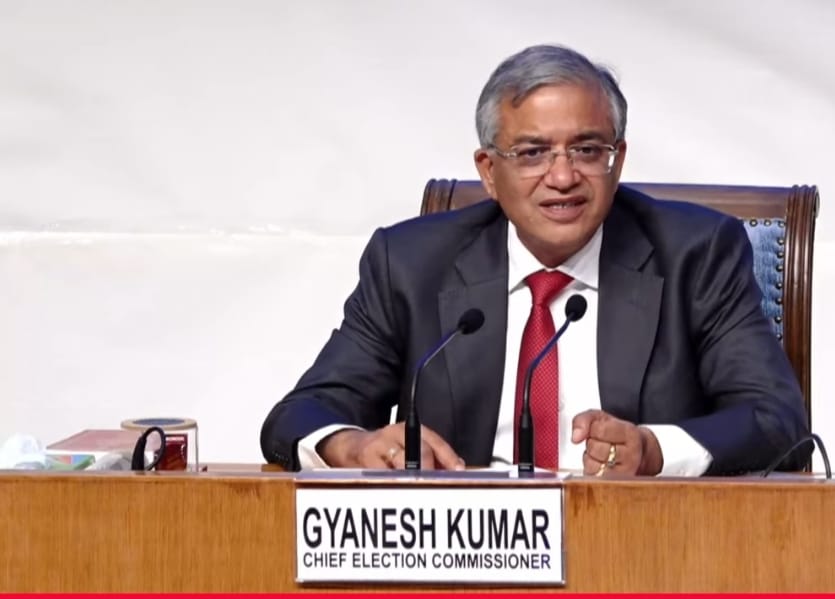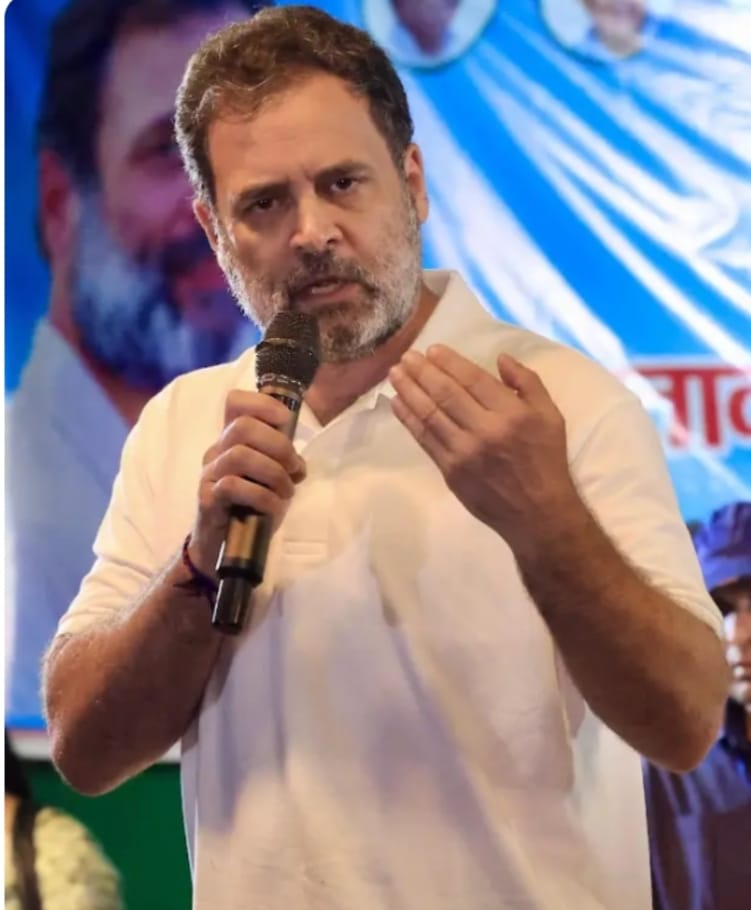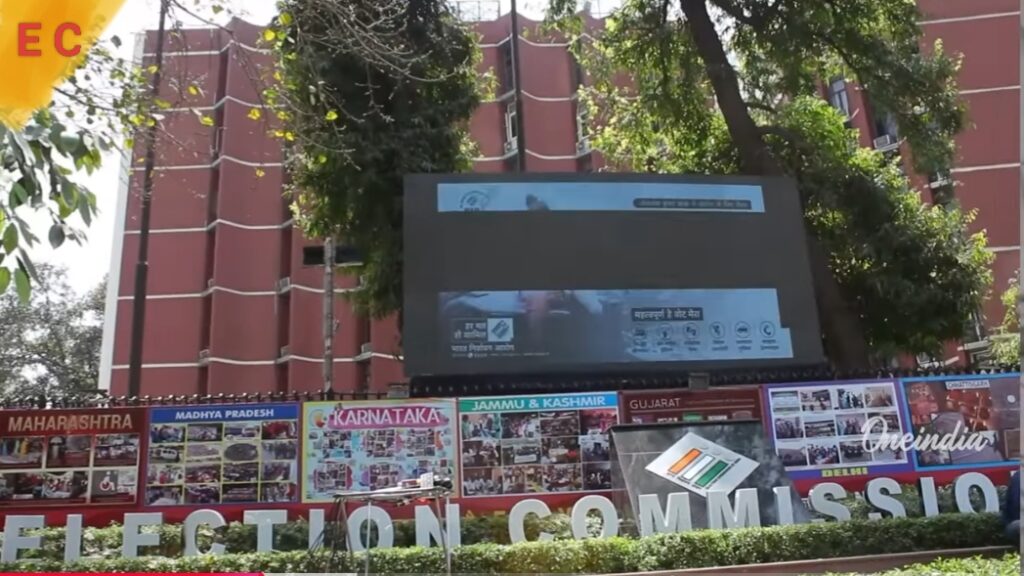

CEC Gyanesh Kumar’s ultimatum to LOP Rahul Gandhi and its implications CEC’s Standoff with LOP Rahul Gandhi: Safeguarding Elections or Political Overreach?
In a dramatic escalation that has ignited debates on institutional independence and political accountability, Chief Election Commissioner (CEC) Gyanesh Kumar issued a stern ultimatum to Leader of Opposition (LOP) Rahul Gandhi during an official press conference on August 17, 2025. Responding to Gandhi’s allegations of “vote chori” (vote theft) in Bihar’s voter lists, Kumar demanded that Gandhi either submit a sworn affidavit substantiating his claims within seven days or issue a public apology to the nation. Failure to comply, Kumar warned, would render the allegations baseless. This confrontation, set against the backdrop of upcoming assembly elections in Bihar, raises profound questions about the boundaries of authority between constitutional bodies and political leaders. As opposition parties mull impeachment proceedings, this episode tests the resilience of India’s electoral framework.
The Context: Allegations of Electoral Fraud and the CEC’s Response
Rahul Gandhi’s accusations stem from concerns over voter list manipulations, including instances of double voting and deletions, which he highlighted during the launch of the “Voter Adhikar Yatra” in Bihar on the same day. Gandhi claimed these irregularities undermined democratic processes, pointing to what he described as systemic “vote theft” orchestrated with the complicity of the Election Commission of India (ECI). In response, CEC Kumar, flanked by other commissioners, held a press conference where he refuted the claims as an “insult to the Constitution” and emphasized the transparency of the Special Intensive Revision (SIR) exercise in Bihar. He argued that Gandhi’s evidence—presented via a PowerPoint with unverified documents—did not meet procedural standards, insisting on an affidavit under oath since Gandhi is neither a voter, candidate, nor booth agent in the affected constituencies.
This demand aligns with ECI protocols established during previous Congress-led governments, which require non-stakeholders to file complaints on oath for formal investigation. Kumar’s tone was unyielding: “There is no third option.” Gandhi swiftly countered, questioning why similar affidavits were not demanded from BJP leaders like Anurag Thakur for their past allegations of voter fraud, accusing the ECI of “blatant partisanship.” Opposition leaders, including Congress’s Jairam Ramesh, echoed this, labeling the ECI’s approach as intimidation rather than investigation.
The press conference marked a rare public rebuke by the ECI, traditionally seen as a neutral arbiter. Social media buzzed with reactions, with users praising Kumar for defending institutional integrity while others decried it as bias.
This isn’t the first clash; the ECI has faced scrutiny post-2024 Lok Sabha elections for alleged delays in voter turnout data and opacity in handling complaints.
Interpreting the Statement: Threat, Defiance, or Insubordination?
Can Kumar’s ultimatum be viewed as a threat, defiance, or insubordination, particularly since the LOP is part of the CEC’s appointment committee?
Legally, the ECI operates as an independent constitutional body under Article 324, not subordinate to any political figure, including the LOP.
The appointment process, governed by the Chief Election Commissioner and Other Election Commissioners (Appointment, Conditions of Service and Term of Office) Act, 2023, involves a committee comprising the Prime Minister, LOP, and a Union Cabinet Minister.
Once appointed, however, the CEC’s tenure is secure, designed to insulate the office from political pressures.
Kumar’s demand for an affidavit is procedural, not personal vendetta. It stems from the need to formalize complaints to prevent frivolous allegations that could erode public trust in elections. Critics argue it borders on threat, as the “apologise to the nation” clause implies public humiliation, potentially chilling free speech.
Defiance?
Perhaps, in the sense of pushing back against a powerful opposition leader, but not insubordination—the ECI answers to the Constitution, not the LOP. As one legal expert noted, “The CEC isn’t defiant; he’s assertive in upholding electoral sanctity.”
This interpretation hinges on context: in a polarized polity, what appears as institutional defence to some is overreach to others.
Comparisons to past incidents, like the ECI’s advisories to politicians during campaigns, show that ultimatums are not unprecedented. However, targeting the LOP directly, especially amid allegations of ECI bias toward the ruling BJP, fuels perceptions of partiality.
If seen as insubordination, it would require proving that Kumar violated his oath or acted against the LOP’s appointing role—but no such hierarchy exists.
Has the CEC Crossed the Red Line?
The “red line” in question is the delicate balance between the ECI’s autonomy and its accountability. By demanding an apology, Kumar may have ventured into political territory, risking the perception of partisanship. Opposition parties accuse him of deviating from constitutional duties, prioritizing rebuttal over addressing grievances like voter list transparency or CCTV footage demands. Congress leaders argue this is the “first time the new ECI is speaking directly,” implying a shift from neutral planted sources to aggressive public stances.
Legally, the ECI has wide powers under Article 324 to ensure free and fair elections, including dismissing baseless claims. But ethically, issuing a timed ultimatum to a constitutional officeholder like the LOP could undermine mutual respect among institutions.
Has he crossed it?
Analysts are divided. Supporters view it as a necessary stand against misinformation that could incite unrest, especially in poll-bound states. 0 Detractors, including INDIA bloc members, see it as intimidation, prompting calls for impeachment. The red line, in India’s democracy, is often blurred by politics; here, Kumar treads close but arguably stays within procedural bounds.
Legal Consequences: Impeachment, Show-Cause, and Beyond
Can the CEC be impeached or issued a show-cause notice for this? Impeachment is possible but arduous. Under Article 324(5), the CEC can be removed only on grounds of “proved misbehaviour or incapacity,” akin to Supreme Court judges—requiring a presidential order after a parliamentary address passed by a special majority (majority of total membership and two-thirds of those present and voting) in both Houses. No CEC has ever been impeached; the process is political, needing cross-party support, which the opposition lacks in numbers.
The INDIA bloc is considering such a motion in the ongoing Monsoon Session, citing partiality and misconduct. However, proving “misbehaviour” from a procedural demand is tenuous; courts have upheld ECI’s independence in similar cases. A show-cause notice could come from Parliament or the Supreme Court if a petition alleges contempt or violation, but the ECI, as a quasi-judicial body, is immune to routine notices. The 2023 Act shields commissioners further, but doesn’t alter removal grounds.
Broader consequences include judicial review: Gandhi could approach the Supreme Court, arguing the ultimatum infringes on free speech under Article 19. Politically, this could erode ECI’s credibility, already questioned post-2024 polls.
If impeachment fails, it might boomerang, portraying the opposition as obstructive.
Implications for India’s Democracy
This standoff underscores deeper issues: eroding trust in institutions amid polarization. The ECI’s refusal to publish voter lists or footage fuels suspicions, while Gandhi’s unsubstantiated claims risk misinformation.
For the CEC, maintaining impartiality is paramount; any perceived bias could invite reforms, like reverting to the Supreme Court’s 2023 ruling on appointments including the Chief Justice.
In conclusion, Kumar’s ultimatum, while legally defensible, walks a tightrope in a democracy where perceptions matter as much as procedures. Whether it fortifies electoral integrity or sparks a constitutional crisis depends on the coming days. As Gandhi weighs his response, the nation watches if affidavits or apologies will bridge this divide—or widen it further.
Hasnain Naqvi is a former member of the history faculty at St. Xavier’s College, Mumbai







